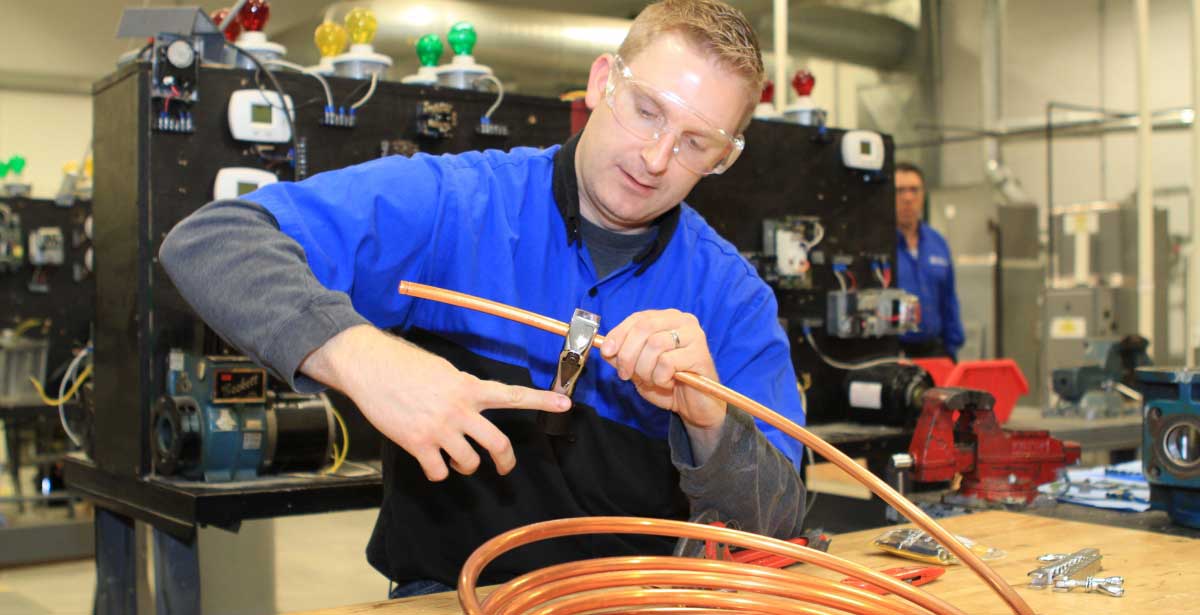
4 Tips to Get your Air Conditioning Ready for Summer
After one of the snowiest New England winters on record, are you ready for some hot weather? Make sure you really are by getting your air conditioning ready now! Try these do-it-yourself tips before the warm weather comes. If they seem like no sweat solutions to you, maybe you have the instincts and skills for a career in Heating, Ventilation, Air Conditioning, and Refrigeration (HVACR). Check out our tips, and then check out HVACR career training at Porter and Chester Institute.
Clear the area surrounding your unit. Central air conditioning units have exterior condensers that require unobstructed air flow to function properly. Make certain that your unit has a good two feet of clear space completely around it. Clear away brush and wood, and trim back shrubs and low hanging branches.
Wash the condenser fan. Dirt and debris on your air conditioning condenser fan will block air flow and reduce your unit’s effectiveness and efficiency. Always make certain the power is off before cleaning your unit. Then, use your garden hose to thoroughly wash the condenser fan of dirt, pollen, grass, leaves and debris. With sufficient water pressure, you’ll be able to clean the fan without any corrosive cleaning chemicals.
Replace your filter. Regular filter replacement removes dust and dirt particles that can damage your air conditioner, plus regular replacement ensures that you have plenty of good quality cool air. It also helps your unit run at peak efficiency, saving you money on electricity. Standard 1 inch fiberglass filters should be replaced at least once a month. Pleated filters can last double, but should be checked often for evidence of dust buildup. Many HVACR technicians recommend using 5 inch filters that can last from 6 months to one year between changes. Just turn off the power to your unit, pop out the old filter and replace with a new one.
Open and clear the registers: When ready for use, open the air conditioning registers and make certain that they are not blocked by rugs, fabric or furniture. Do a visual inspection into the ductwork to make sure it is clear and clean. Remove dirt, dust and items that may have found their way into the vents, but if you discover mold or can’t remove something, contact a professional HVACR technician.
If you’re a problem-solver who likes variety in your work and in your day, a career as an HVACR technician might be right for you. According to the U.S. Bureau of Labor Statistics, demand in this profession is expected to be faster than average through 2022 and there were more than 10,000 HVACR installers and mechanics employed in Connecticut and Massachusetts in 2013. If you’d like to learn more about this growing industry, check out the Porter and Chester Institute HVACR career training programs in Connecticut and Massachusetts today.
References:
http://www.bls.gov/oes/current/oes499021.htm






